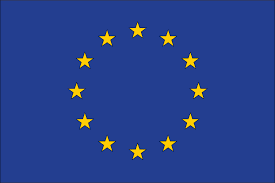Chemycal has been acquired by 3E
Learn MoreChemycal has been acquired by 3E
Learn MoreDiscover how Chemycal PRO helps you boosting your regulatory monitoring:

itle of the initiative | Revision of the Ambient Air Quality Directives |
Lead DG (responsible unit) | DG Environment, Unit C3 Clean Air |
Likely Type of initiative | Legislative proposal |
Indicative Planning | Q3 2022 |
Additional Information | https://ec.europa.eu/info/law/better-regulation/have-your-say/initiatives/12677-Revision-of-EU-Ambient-Air-Quality-legislation |
A. Context, Problem definition and Subsidiarity Check |
Context |
The Ambient Air Quality Directives 1 define common methods to monitor, assess and inform on ambient air quality in the European Union, and establish objectives for ambient air quality to avoid, prevent or reduce harmful effects on human health and the environment as a whole. In November 2019, the Commission published a Fitness Check of the Ambient Air Quality Directives. 2 It concluded that these Directives have been partially effective in improving air quality, but not fully effective, and not all their objectives have been met. It concluded that the remaining gap to achieve air quality standards is too wide in certain cases. The Fitness Check outlined seven lessons learnt: (1)Air quality remains a major health and environmental concern; (2)Air quality standards are instrumental, and partially effective, in reducing pollution; (3)Current EU standards are less ambitious than scientific advice; (4)Limit values have been more effective than other types of air quality standards; (5)Legal enforcement action by European Commission, and civil society, is an effective tool; 3 (6)There is scope to further harmonise monitoring, modelling, information, and air quality plans; (7)Not all reported data is equally useful, e-reporting allows for further efficiency gains. The European Green Deal 4 announced in the framework of its zero pollution ambition for a toxic-free environment, that the Commission would draw on the lessons learnt from the Fitness Check - and strengthen provisions on monitoring, modelling and air quality plans in order to help local authorities achieve cleaner air, as well as align EU air quality standards closely with World Health Organization (WHO) recommendations. Updating the EU air quality standards based on the latest scientific evidence for the protection of human health and the environment and strengthening the basis for effective action for better air quality, including via better air quality monitoring, modelling and air quality plans will improve ambient air quality. |
CONTINUE READING ON eur-lex.europa.eu
2013 © MyChemicalMonitoring. ALL Rights Reserved. About Us | Terms and Conditions